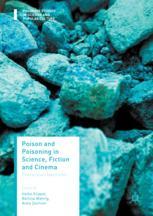

Most ebook files are in PDF format, so you can easily read them using various software such as Foxit Reader or directly on the Google Chrome browser.
Some ebook files are released by publishers in other formats such as .awz, .mobi, .epub, .fb2, etc. You may need to install specific software to read these formats on mobile/PC, such as Calibre.
Please read the tutorial at this link: https://ebookbell.com/faq
We offer FREE conversion to the popular formats you request; however, this may take some time. Therefore, right after payment, please email us, and we will try to provide the service as quickly as possible.
For some exceptional file formats or broken links (if any), please refrain from opening any disputes. Instead, email us first, and we will try to assist within a maximum of 6 hours.
EbookBell Team

5.0
18 reviewsThis book is about poison and poisonings; it explores the facts, fears and fictions that surround this fascinating topic. Poisons attract attention because they are both dangerous and hard to discover. Secretive and invisible, they are a challenging object of representation. How do science studies, literature, and especially film—the medium of the visible—explain and show what is hidden? How can we deal with uncertainties emerging from the ambivalence of dangerous substances? These considerations lead the editors of this volume to the notion of “precarious identities” as a key discursive marker of poisons and related substances. This book is unique in facilitating a multi-faceted conversation between disciplines. It draws on examples from historical cases of poisoning; figurations of uncertainty and blurred boundaries in literature; and cinematic examples, from early cinema and arthouse to documentary and blockbuster. The contributions work with concepts from gender studies, new materialism, post-colonialism, deconstructivism, motif studies, and discourse analysis.